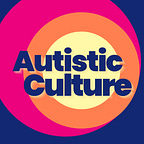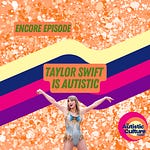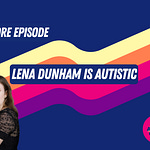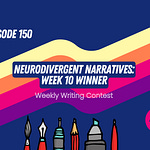An episode that deeply values justice and honesty!
In Episode 149 of The Autistic Culture Podcast, Dr. Angela Kingdon explores Pillar 9 of Autistic Culture: Justice Seeking, with special guest Clare Kumar, productivity expert and host of the Happy Space Podcast.
Clare is a late-diagnosed autistic woman, executive coach, and productivity speaker. She brings unique insight into neurodivergent efficiency, workplace design, and inclusive spaces through her work with Hidden Disabilities Canada and her signature Joy Inventory tool.
If you've ever been accused of being “too intense,” “too rigid,” or “black-and-white,” this episode is for you. Angela and Clare flip the script and reclaim those traits as moral clarity, fairness-driven thinking, and authentic advocacy — powerful parts of autistic identity.
Here’s what defines this core Autistic trait:
We call out what others ignore.
Autistic people are often the first to question broken systems, double standards, and flawed logic. We don’t pretend it makes sense—we say it doesn’t.We sense injustice instantly.
Misaligned actions, hypocrisy, and favouritism aren’t just annoying—they feel unbearable. Fairness isn’t optional. It’s foundational.We speak up—no matter the cost.
Whether it's calling out ableism, bias, or misinformation, autistic advocates often challenge power structures—even when it's uncomfortable.We hold systems to their own rules.
We expect policies to be applied with consistency and equity. Selective enforcement? We notice—and we question it.We feel justice in our bodies.
What’s labelled as “Rejection Sensitive Dysphoria” is often justice sensitivity—a real-time emotional response to being dismissed for telling the truth.We don’t fake neutrality.
When something’s wrong, we can’t mask it. We’re not “too intense”—we’re deeply aligned with our values.We crave clarity, not conflict.
Accountability helps us feel safe. We don’t want to blame—we want to understand what went wrong and how to fix it.We value truth over comfort.
Authenticity matters more than approval. Many of us would rather lose a friendship than betray our principles.
Key Concepts
✨ Moral clarity: We often see the ethical core of a situation before others do—and struggle to stay silent about it.
🗣️ Literal honesty: We mean what we say and expect others to do the same.
💥 Rejection sensitivity: Injustice isn’t abstract—it hits us in the body.
⚫⚪ Black-and-white thinking: Not immaturity. Often, it’s a response to seeing real harm ignored.
🧐 System scrutiny: We notice when things don’t align—and we say something.
😤 Meltdowns as protest: Emotional intensity is a valid response to injustice, not just overstimulation.
⚖️ Fairness as a driving force: We advocate for others even when it costs us socially.
🔍 Truth over comfort: We’d rather be uncomfortable than complicit.
💭 For so many of us, justice-seeking has been used against us. We were “too intense,” “too much,” or “overreacting.” But what if we reframed it as a cultural strength?
Here are ten ways to lean in:
Let your body guide you.
When you feel that heat of injustice rise, listen. That’s truth.Pick your battles wisely.
You don’t have to fight every fight. Choose the ones aligned with your values.Explain your logic.
Say: “This feels wrong to me because it breaks the pattern or expectation.”Validate your emotional reaction.
Meltdowns aren’t a weakness. They’re protest.Use scripting when needed.
Have phrases ready to stand up for yourself calmly.Create micro-cultures of fairness.
At work, home, or school—model your version of justice.Don’t mask your clarity.
Say what’s true—even if it’s not what’s easy.Channel outrage into action.
Start a campaign, write a letter, set a boundary.Make space for nuance.
Justice doesn’t mean perfection. It means integrity.Celebrate when systems do get better.
Even tiny reforms are evidence of your impact.
So, whether you’re autistic, exploring the possibility, or just someone who loves and respects autistic people, you are welcome here.
We’re saving you a seat!
This episode is a part of our Start Here Series, which is designed for new listeners of the show who are wondering, “Where should I start?” to have a solid foundation for their experience here. It’s also for loyal listeners to begin to more fully embody the pillars of Autistic culture with more clarity and pride. Join the convo with #AutisticCulture!
Resources:
Clare Kumar — Happy Space Podcast, Episode 45
In this pivotal episode, Clare explores late autism diagnosis, justice sensitivity, and the powerful moment of realisation with Melanie Diesel.
🔗 Listen here: Happy Space Podcast – Episode 45
👕 InclusiviTees by Clare Kumar
Wear your values. InclusiviTees are ethically made, neurodivergent-affirming apparel designed by Clare to spark conversation and promote inclusivity.
🔗 Shop now: https://clarekumar.com/inclusivitee/
🌐 Clare Kumar’s Official Website:
Learn more about Clare's work in productivity, neuroinclusion, and sensory-friendly design. 🔗 Visit: https://clarekumar.com
🧠 Stanford Neurodiversity Summit:
Explore Clare and Angela’s collaborative presentation on late-diagnosed autistic women, first featured at the Stanford Neurodiversity Summit.
🔗 Visit: https://www.melaniedeziel.com/sns2024
Related Episodes:
Greta Thunberg (Ep 15)
Greta Thunberg is autistic justice-seeking personified—driven by data, clarity, and moral consistency, she confronts global leaders not with emotionless logic, but with emotionally urgent truth-telling.Sesame Street (Ep 20)
Sesame Street quietly redefined justice in children’s media, centred on inclusion, accessibility, and representation. It models a world where equity is woven into the foundation.Superheroes (Ep 28)
Superheroes are classic justice seekers—but autistic-coded heroes take it further, challenging not just villains, but flawed systems, empty rules, and the cost of enforced normalcy.John McEnroe (Ep 42)
John McEnroe’s infamous “You cannot be serious!” moment captures the autistic impulse to call out unfairness in real time, refusing to stay quiet when systems violate their own rules.The Good Place (Ep 58)
The Good Place is justice-seeking with a philosophy degree—questioning not just what’s right, but who gets to decide, and whether good intentions are ever enough.Elsa (Ep 63)
Elsa’s “Let It Go” moment is more than an anthem—it’s a justice-seeking declaration against forced masking, where freedom means living aligned with your inner truth, not societal demands.You're the Worst (Ep 87)
You're the Worst offers a justice-seeking lens on mental health and relationships, showing how refusal to play neurotypical games can be a path to radical honesty and emotional equity.Creature Commandos (Ep 101)
Creature Commandos flips the justice script, spotlighting misunderstood outcasts who fight not just external threats, but the moral hypocrisy of the systems that created them.Lena Dunham (Ep 113)
Lena Dunham’s work is messy, raw, and unfiltered—her justice-seeking shows up in her refusal to gloss over discomfort or conform to sanitised stories of womanhood, power, or pain.
Follow us on Instagram
Find us on Apple Podcasts and Spotify
Learn more about Angela at AngelaKingdon.com
Our Autism-affirming merch shop












